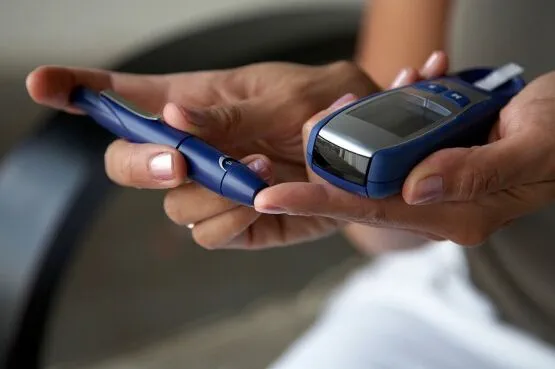What is coronavirus (COVID-19)?
Getting reliable, accurate information about coronavirus (COVID-19) is important. Here I'll explain what the coronavirus is, what the symptoms are, and how you can protect yourself from COVID-19 infection.

What is the coronavirus?
Coronaviruses are a group of viruses that cause illnesses such as the common cold. They can also cause more severe conditions such as pneumonia, Middle East Respiratory Syndrome (MERS) and Severe Acute Respiratory syndrome (SARS). The COVID-19 strain of coronavirus was not previously known.
What causes coronavirus (COVID-19)?
COVID-19 is spread from an infected person to another person in close contact through:
- sneezing
- coughing
- speaking
- breathing
COVID-19 can be spread via contaminated surfaces as well.
What are the symptoms of coronavirus (COVID-19)?
COVID-19 symptoms typically develop in five to six days. The main symptoms of COVID-19 include:
- fever and chills
- headache
- high temperature
- a new continuous cough
- shortness of breath
- blocked and runny nose
- loss of taste and smell
- sore throat
- tiredness
- diarrhoea
- vomiting
It’s also possible that you won’t have any symptoms (asymptomatic). In more severe cases the virus can cause pneumonia, kidney failure and death. The risk of these complications can depend on age, existing conditions and weakened immune systems.
You can test to see if you have coronavirus using a lateral flow test which you can do at home. Lateral flow tests are available to buy at pharmacies and supermarkets.
How long does coronavirus (COVID-19) last?
For most people, COVID-19 symptoms can last between 4 to 12 weeks. But sometimes it may go on for longer than 12 weeks. Having symptoms for longer than 12 weeks has been referred to as long COVID. This is when you still have ongoing symptoms after COVID-19 infection that can’t be explained by another illness.
How can I protect myself and others?
Vaccination
The best way to protect yourself from COVID-19 is to get vaccinated with a COVID-19 vaccine. Vaccines teach your body’s immune system to recognise and fight off harmful diseases that it hasn’t come into contact with before. A vaccine contains a weakened version of a virus or bacteria so that your body can make antibodies against it.
For example, the COVID-19 vaccines work by giving your body a set of instructions to create the antibodies and cells needed to fight off COVID-19. Antibodies kill viruses in your body so that you don’t get ill. This is called immunisation.
You can make an appointment for the coronavirus vaccine on the NHS website. There are currently four vaccines for coronavirus that have been approved for use in the UK – Oxford-AstraZeneca, Pfizer-BioNTech, Novavax and Moderna.
You will need to have two doses of the vaccine at two separate appointments; you can also get a third booster dose. You might have some mild side effects after vaccination such as pain in your arm, headache, chills and tiredness. But, these should pass in a few days.
Hygiene measures
To prevent the spread of germs, carry out basic hygiene measures, such as the following.
- Wash your hands more often, for at least 20 seconds, using running water and soap. Use an alcohol-based gel if water and soap isn’t available.
- Cough or sneeze into your upper sleeve or tissue – not your hand. Put the tissue immediately in the bin and wash your hands.
- Don’t touch your eyes, nose or mouth if you’re hands aren’t clean.
- Clean surfaces in your house that are touched often, like door handles or phone screens.
- Stay away from unwell people.
If you do become infected with COVID-19, you should wear a mask if you need to go out to protect others. Wearing a mask can prevent particles from your nose and mouth reaching other people.
Do you know how healthy you truly are? Bupa health assessments give you a clear overview of your health and a view of any future health risks. You'll receive a personal lifestyle action plan with health goals to reach for a happier, healthier you.
-
Sources Sources
- Coronavirus disease 2019 (COVID-19). BMJ Best Practice. bestpractice.bmj.com, last updated December 2022
- WHO Director-General's opening remarks at the media briefing on COVID-19 - 11 March 2020. World Health Organisation. who.int, published March 2020
- Coronavirus - COVID-19. NICE Clinical Knowledge Summaries. cks.nice.org.uk, last revised January 2023
- COVID-19: the green book, chapter 14a. UK Health Security Agency. gov.uk, last updated September 2022
- Coronavirus (COVID-19). www.gov.uk, last accessed February 2023
- Post COVID-19 condition (Long COVID). World Health Organisation. www.who.int, published December 2022
- Living safely with respiratory infections, including COVID-19. UK Health Security Agency. gov.uk, last updated June 2022
- Infectious disease. Oxford Handbook of General Practice (5ed online). Oxford Academic, academic.oup.com published June 2020
- What to expect after your COVID-19 vaccination. UK Health Security Agency. gov.uk, last updated November 2021
- Advice for the public: Coronavirus disease (COVID-19). World Health Organisation. who.int, last updated May 2022
About our health information
At Bupa we produce a wealth of free health information for you and your family. This is because we believe that trustworthy information is essential in helping you make better decisions about your health and wellbeing.
Our information has been awarded the PIF TICK for trustworthy health information. It also follows the principles of the The Information Standard.

More general health advice articles
Did you find our advice helpful?
We’d love to hear what you think. Our short survey takes just a few minutes to complete and helps us to keep improving our healthy lifestyle articles.
Legal disclaimer
This information was published by Bupa's Health Content Team and is based on reputable sources of medical evidence. It has been reviewed by appropriate medical or clinical professionals and deemed accurate on the date of review. Photos are only for illustrative purposes and do not reflect every presentation of a condition.
Any information about a treatment or procedure is generic, and does not necessarily describe that treatment or procedure as delivered by Bupa or its associated providers.
The information contained on this page and in any third party websites referred to on this page is not intended nor implied to be a substitute for professional medical advice nor is it intended to be for medical diagnosis or treatment. Third party websites are not owned or controlled by Bupa and any individual may be able to access and post messages on them. Bupa is not responsible for the content or availability of these third party websites. We do not accept advertising on this page.







